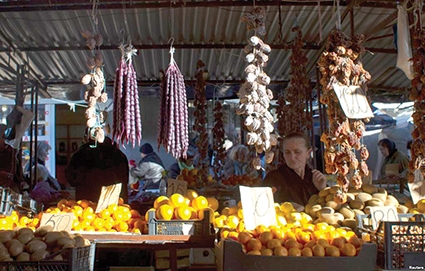Asian Stink Bugs Cause Russia to Ban Imports from Breakaway Abkhazia
Russia’s Rosselkhoznadzor (Federal Service for Veterinary and Phytosanitary Surveillance) has imposed a ban on the import of vegetables and fruit from Georgia’s breakaway Abkhazia region due to the dangerous agriculture pest – Asian stink bugs.
The Russian side made the decision in order to prevent the spread of the pest onto the Russian territory from occupied Abkhazia.
The information was released by the Sputnik Abkhazia media outlet. Head of Plant Quarantine Inspection of the de facto republic, Arkady Jinjia told media that the pest appeared in 2016, and inflicted significant damage in the Gali District. In 2017, he said the bugs spread across to the whole territory of the occupied region and left locals without their main source of income, the nut harvest.
"I don’t think we should be afraid of this ban, since it is temporary. The decision provides for the banning of more than five kilograms of fruit and vegetables in hand luggage,” Jinjia told Sputnik Abkhazia.
However, it is still unclear how long the ban will last, as Asian stink bugs (Brown marmorated stink bugs) multiply rapidly, making the elimination process difficult and sometimes known to take years.
Jinjia stated that the Asian bugs came onto the territory of Abkhazia.
He added that the de facto government is working on a plan to eliminate the bugs in order to resume exports to their largest market – Russia.
According to Georgian media, last year the de facto authorities of Abkhazia spent around 25 million Russian Rubles ($4.3 million) in the fight against Asian stink bugs, but without any tangible success, as the pest has doubled in the region this year.
Asian stink bugs are also proving a serious problem in Georgia. First reported in Georgia in 2015, in 2016 the bugs destroyed a significant amount of the hazelnut harvest of western Georgia, increasing in number again last year.
The Georgian government has adopted the ‘Strategy against Brown Marmorated Bugs 2018,’ which includes four main directions: information campaign, implementation of the monitoring system, stink bug control measures and scientific research works.
Thea Morrison












